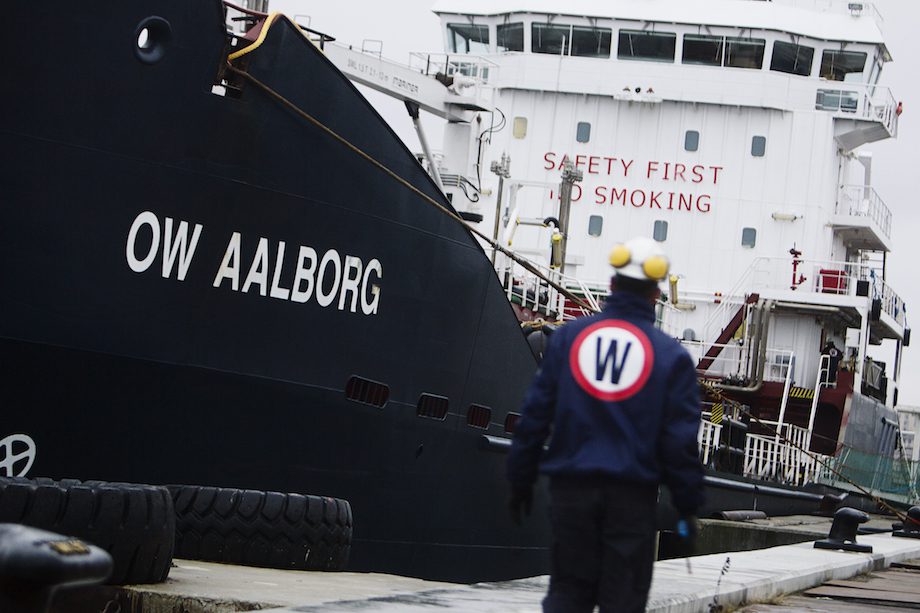China Bunker Fuel Sales Plunge
By Muyu Xu (Reuters) China’s exports of marine fuel in March plunged 15% from a year ago, customs data showed on Wednesday, owing to high prices and anti-COVID restrictions at...

Photo (c) OW Bunker A/S
![]() By Jane Xie and Dmitry Zhdannikov
By Jane Xie and Dmitry Zhdannikov
SINGAPORE/LONDON, Dec 2 (Reuters) – Swiss trading house Mercuria has moved to become a significant player in the marine fuel market by hiring a team of close to 40 former employees from the once-largest supplier, traders and sources close to the matter said on Tuesday.
The bankruptcy of Denmark’s OW Bunker, which had controlled around 7 percent of the global shipping fuel market and employed more than 600 people, has given Mercuria an opportunity to beef up its business shortly after it acquired the physical commodities unit of JPMorgan Chase & Co.
The hiring of OW Bunker traders will help integrate Mercuria’s existing fuel oil business, trading cargoes typically in sizes of 20,000 tonnes, and the sale of fuel in smaller lots to be delivered to ships, which take only up to around 5,000 tonnes per delivery.
Traders estimated that OW Bunker used to sell and trade up to 300,000 tonnes of marine fuel, also known as “bunker”, in South Korea and Japan every month, and a similar volume in Singapore.
Mercuria has launched a bunker business in North Asia by hiring 17 former OW Bunker staff, an employee who has been absorbed said.
The team is led by Joon Kim, the former branch manager of OW Bunker South Korea, the source said. It includes 10 traders overseeing bunker trading in South Korea and Japan, new markets for the Swiss firm.
Mercuria is also seeking to hire 11 to 12 employees in Singapore, adding to its current team of three traders, a second source at the Singapore office said.
In Singapore, the world’s biggest market for bunker fuel, it is in competition with other cash-rich traders and suppliers, including OW Bunker’s main competitor World Fuel Services, to grab a bigger market share.
Mercuria may also add staff in Greece, another source said.
Current monthly bunker fuel sales volumes are around 3.5-3.6 million tonnes in Singapore and a total of around 1.1-1.2 million tonnes in South Korea and Japan. (editing by Jane Baird)
© 2014 Thomson Reuters. All rights reserved.
This article contains reporting from Reuters, published under license.

Sign up for gCaptain’s newsletter and never miss an update

Subscribe to gCaptain Daily and stay informed with the latest global maritime and offshore news
Essential news coupled with the finest maritime content sourced from across the globe.
Sign Up